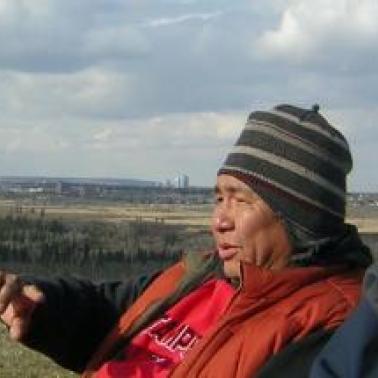
Indigenous Worldview Circles
Why believe what we believe? That's a good question to ask yourself. How many of us think about it regularly? In a certain sense, we ask ourselves this when we leave the safety of the family home and go out into the wide world alone! We must then make our own decisions: will we keep the stories and values we have been taught or will we seek new ones, which we will adopt? “I wonder every day why I believe what I believe,” says chef Lee Crowchild. “We need critical thinking. Chief Crowchild spoke at a Zoom session, hosted by IofC Canada as part of Indigenous Worldview Circles.
Chief Lee Crowchild is a traditional knowledge keeper of the Tsuut'ina in Alberta, as well as a former chief of that nation. He is, among other things, a visionary advisor who offers direction and understanding to people and businesses, from an Aboriginal perspective.
During the session, moderator Qhase Lokhandwala raised the following points: consequences and respect for treaties; the Pope's recent visit to Canada and his apology to the Aboriginal peoples; the doctrine of discovery; the rising generation; what can we hope from now on?
Responding to the theme: “Why believe what we believe? To think is to reflect; believing is not synonymous with thinking! a participant remarked that in the past we have always heard the same stories, but never heard different ones. So we believed them. Then she asked, "How do you consciously refuse to pass on an old story?" I think we have to defend a new story and keep telling it; in the long run, it will heal the wounds of the past. Chief Crowchild agreed, but said it's quite a challenge. “I believe in the goodness of mankind,” he said.
In response to the following question: "What steps do you want to see Britain take?" Chief Crowchild mentioned the "do the wolf" method. He added: “The time is not for reconciliation. In an interview with the CBC, he explained that the expression "to wolf" dates back to the time of his ancestors. These would meet with the leaders of the tribes they had fought against, not to apologize, but to validate each other's version of the truth, hoping that they might eventually move on.
Joy Newman
